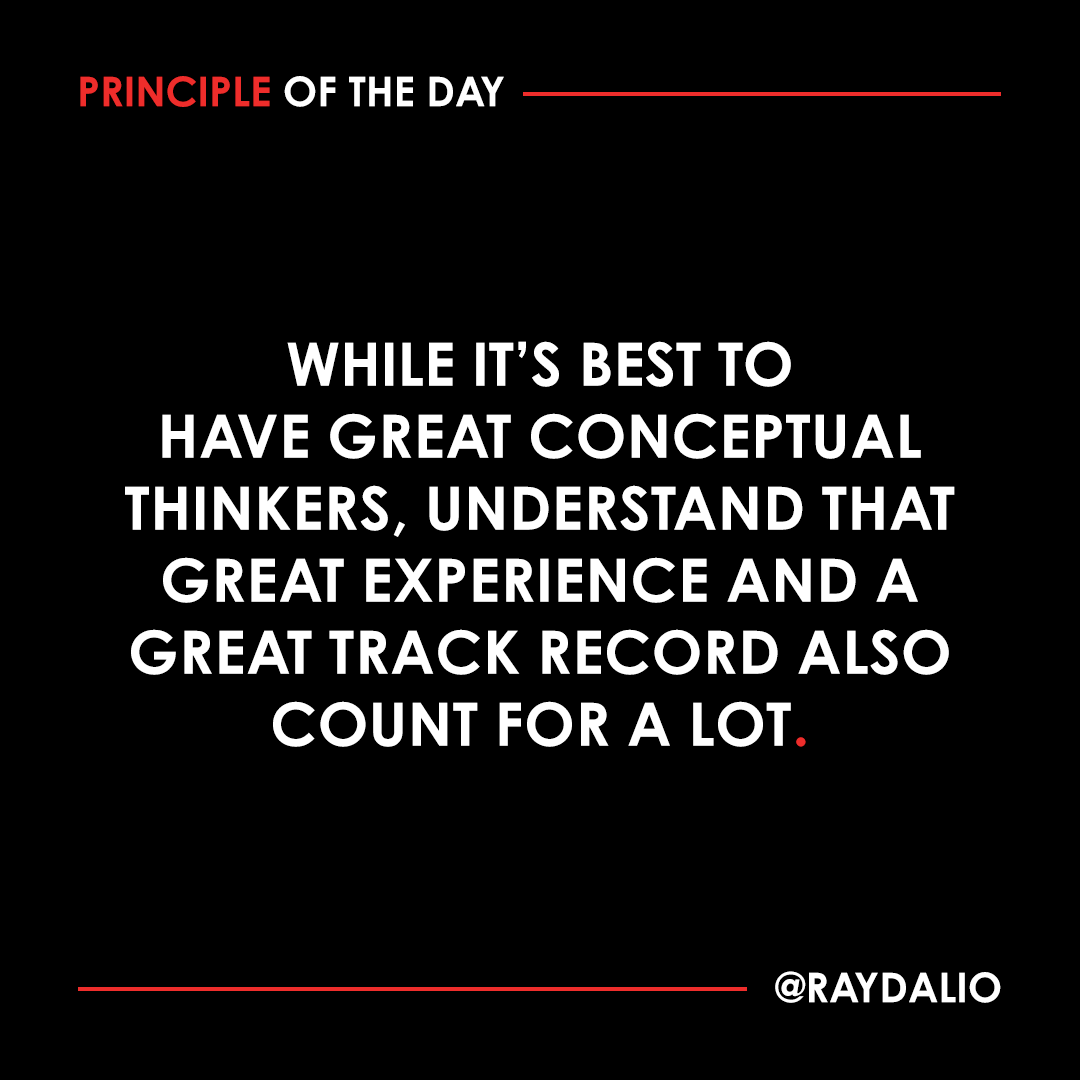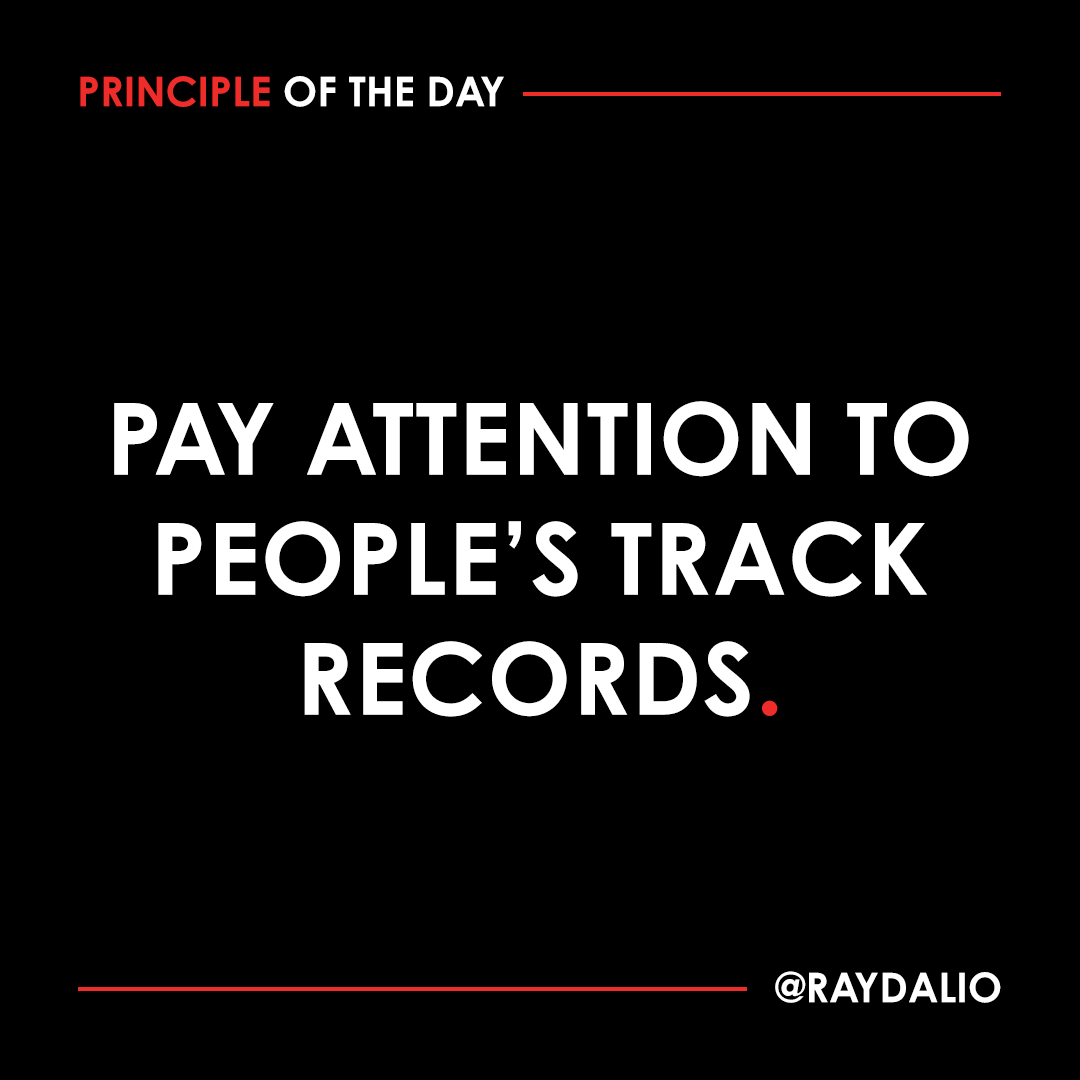
There are all sorts of jobs and they require all types of people to handle them. #principleoftheday (1/5) 

I am frequently biased toward finding the entrepreneur type--a clever, open-minded scrapper who will find the best solution--and I have often been disappointed. (2/5)
On the other hand, sometimes I have found a master craftsman who has devoted decades to his specialty who I could completely rely on. (3/5)
What keeps coming to my mind is Malcolm Gladwell's rule that it takes ten thousand hours of doing something to build expertise--and the value of looking at batting averages to judge how well a person can hit. (4/5)
One way you can tell how well a talented rookie will do relative to a proven star is to get them into a debate with each other and see how well they each hold up. (5/5)
• • •
Missing some Tweet in this thread? You can try to
force a refresh








